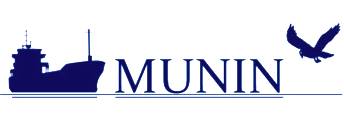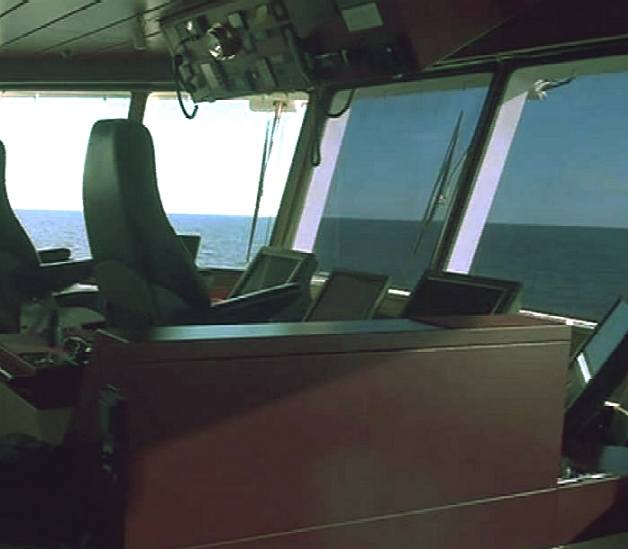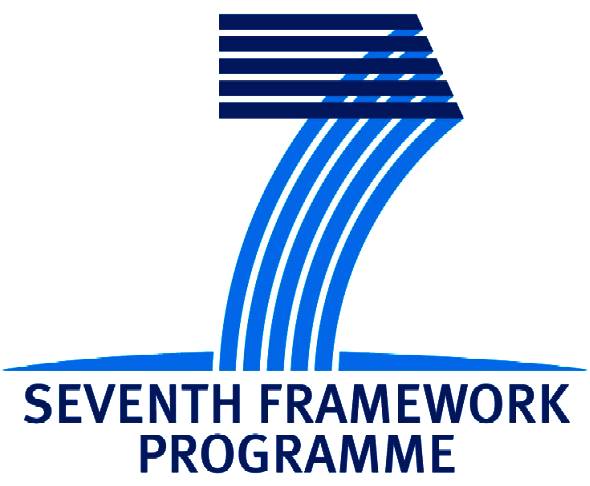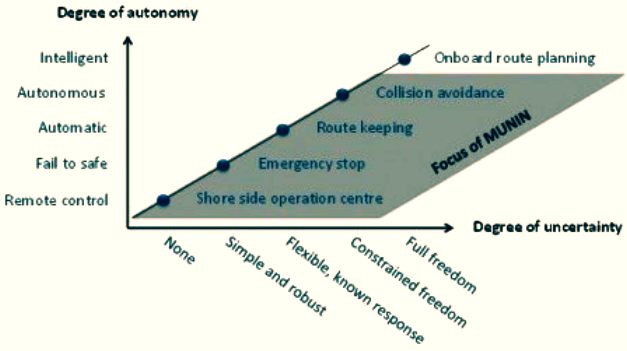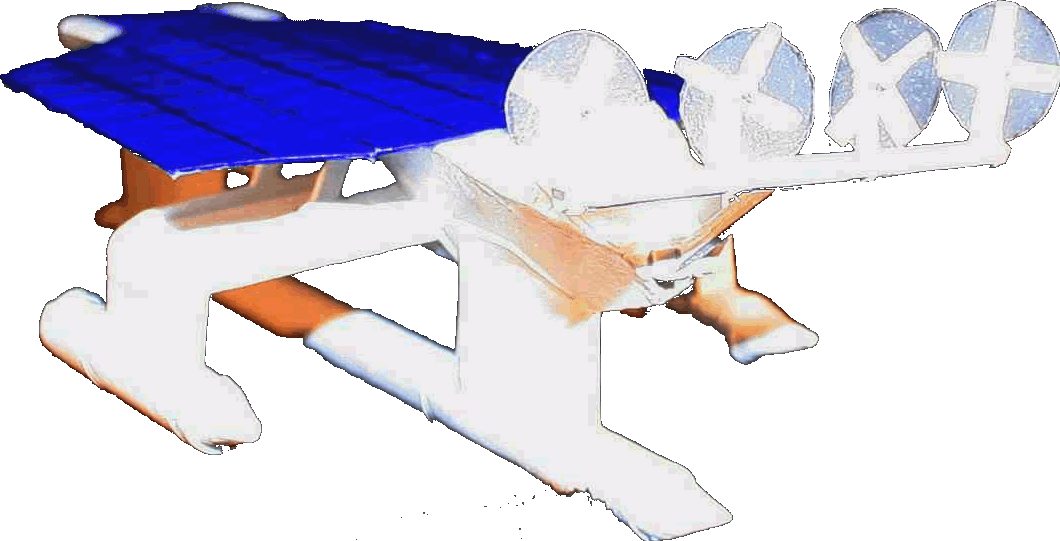|
MUNIN UNMANNED MERCHANT SHIPPING PROJECT Autonomous Ships in Sight
|
|
|
ABOUT MUNIN
The MUNIN project (Maritime Unmanned Navigation through Intelligence in Networks) is a collaborative research project, co-funded by the European Commission under its Seventh Framework Programme.
The MUNIN project is to develop and verify a concept for an autonomous ship, which they define as a vessel primarily guided by automated on-board decision system. The onboard system is finally controlled (supervised) by a remote operator in a shore side control station. The concept therefore runs parallel to the thinking of the SolarNavigator team - provided only that the levels of autonomy may vary - clearly, a solar powered ship is that much more self reliant.
MUNIN is a consortium of eight partners led by Fraunhofer CML who has a scientific and industrial background.
This group will look at the operational, technical and legal aspects of autonomy as a vision for unmanned future ships. The group will seek solutions for:
* an autonomous bridge, * an autonomous engine room, * a shore side operation center linking vessel and a shore operator will be developed and verified.
The third item appears to cross with the MONA LISA project, another European funded consortium.
Besides the long term goal of an autonomous ship, MUNIN’s research should provide:
* efficiency, * safety and * sustainability advantages for existing vessels in short term.
This includes e.g. environmental optimization, new maintenance and operational concepts.
The shore based approach offers
'seafaring' careers in the long-term the possibility that are more socially
acceptable by virtually eliminating the time seafarers spend away from their
families.
AUTONOMOUS
SHIPS IN SIGHT 23/11/2012
1. MUNIN aims to automate routine tasks on board so that the vessel can basically act independently, for example, during open sea voyages;
2.
A remote intervention and control mechanism will be developed enabling shore-based control of unmanned vessels, for example, during emergency situations.
This is caused by increasing trade volumes and the trend towards slow steaming. An often cited reason for this shortage is the unattractiveness of seafaring, especially for youngsters. Seafaring’s inherent problems of lacking family friendliness and the high degree of isolation from social life are further compounded by the increasing ecological demand for slower sailing speeds. Here, the unmanned vessel would constitute a breakthrough.
On the one hand, it would reduce the expected pressure on the labour market that is caused by slow steaming, as it would enable, at least partly,
labour-free shipping. On the other hand, routine tasks would be automated and only the demanding but interesting navigational and technical jobs would be transferred from the ship to a shoreside operation centre, making the “seafaring” jobs more attractive and family friendly than they are today.
THE PARTNERS
The Fraunhofer Center for Maritime Logistics and Services CML (Fraunhofer CML) is situated at the Hamburg University of Technology in Hamburg, Germany. Fraunhofer CML homepage Hans-Christoph Burmeister, is the project coordinator at Fraunhofer CML
The Norwegian Marine Technology Research Institute (MARINTEK), Trondheim, Norway. MARINTEK is a company in the SINTEF Group, one of Europe’s largest independent research institutions. MARINTEK homepage
Chalmers University of Technology is a Swedish university located in Gothenburg that focuses on research and education in technology, natural science, and architecture. Chalmers homepage
Hochschule Wismar – University of Applied Sciences Technology: Department of Maritime Studies is part of the faculty of Engineering at Hochschule Wismar, situated in Rostock-Warnemünde, Germany. They are exerts in simulator training as full mission ship handling carried out by Professors and lecturers with license management levels such as Master of a ship or Chief Engine Officer. Hochschule Wismar homepage
Aptomar AS is a Norwegian company located in Trondheim specialising in marine sensor systems such as the SECurus system that combines advanced stabilized long range IR and digital video cameras with an Electronic Chart System which overlays information of several sources for a speedy evaluation of real time situations for good response. Aptomar AS homepage
MarineSoft Entwicklungs- und Logistikgesellschaft mbH is an internationally operating provider for maritime software solutions, located in Rostock-Warnemünde, Germany. It offers state-of-the-art solutions in the field of maritime simulation of machinery plants, computer based training applications, information and operation systems, consultancy and courseware. MarineSoft homepage
Marorka
ehf is a leading provider of energy management solutions for the international
shipping industry with it’s headquarters in Reykjavik, Iceland.
Marorka’s products and services enable vessel operators to optimize fuel
consumption by maximizing the energy efficiency of their vessel or fleet. Marorka ehf homepage
On 16 June 2012, Marorka signed an agreement with seven leading specialist firms and research institutes in the shipping sector participating in the MUNIN research project - Maritime Unmanned
Navigation through Intelligence in Networks. University College Cork UCC is situated in south-west Ireland and was founded as a Queen’s College in 1845. The Law Department at UCC is at the forefront of legal research in Ireland, the EU and internationally in various areas, including environmental law, human rights, marine law, business law, comparative law, constitutional law and legal theory. UCC homepage
CONTACTS
Project Manager - Hans-Christoph Burmeister Fraunhofer
Center for Maritime Logistics and Services CML Ørnulf Jan Rødseth MARINTEK
Dep. Maritime Transport Systems
LINKS
http://www.scheepsbouw.nl/ - Dutch Shipbuilding Association http://www.retrofit-project.eu/ - European Commission 7th Framework innitiative http://www.cmt-net.org/ - Germany: Centre of Maritime Technologies http://www.enav-international.com/issues/articles/id1317-Autonomous_Ships_in_Sight http://www.unmanned-ship.org/munin/ http://www.marorka.com/marorka-joins-the-munin-research-project-for-autonomous-ships/
[MONALISA develops Motorways of the Sea, contains eco-efficient e-navigation solutions and supports the EU Strategy for the Baltic Sea. The project aims at giving a concrete contribution to the efficient, safe and environmentally friendly maritime transport.]
The ultimate Robot Boat. Solarnavigator uses an advanced SWASSH hull as the platform to mount the world's first autonomous circumnavigation. A successful expedition could pave the way for improved safety at sea.
|
|
|
This website is copyright © 1991- 2013 Electrick Publications. All rights reserved. The bird logo and names Solar Navigator and Blueplanet Ecostar are trademarks ™. The Blueplanet vehicle configuration is registered ®. All other trademarks hereby acknowledged and please note that this project should not be confused with the Australian: 'World Solar Challenge'™which is a superb road vehicle endurance race from Darwin to Adelaide. Max Energy Limited is an educational charity working hard to promote world peace.
|
|
|
AUTOMOTIVE | BLUEPLANET BE3 | ELECTRIC CARS | ELECTRIC CYCLES | SOLAR CARS | SOLARNAVIGATOR |
